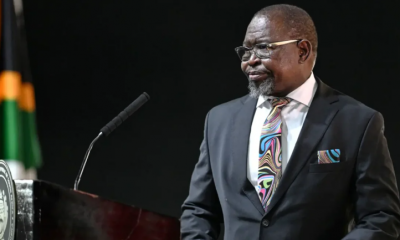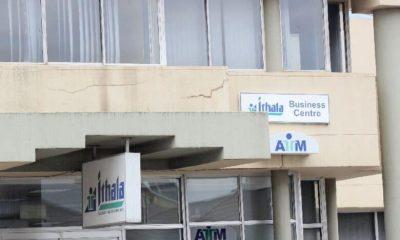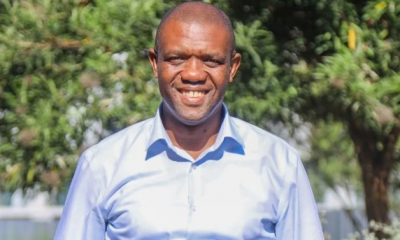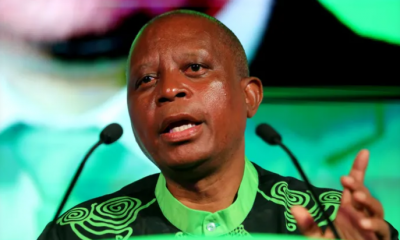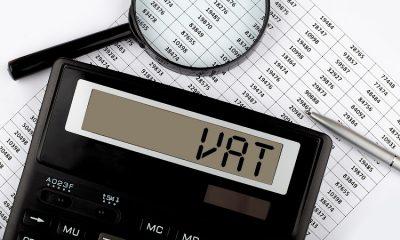411
Bread or Ballot: South Africa’s VAT Dilemma Threatens Fragile Coalition
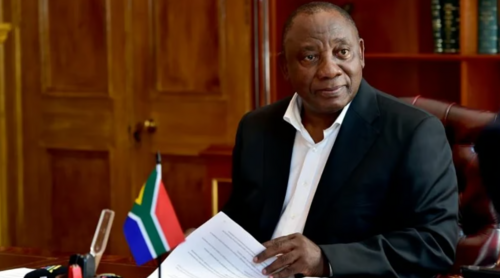
South Africa is standing on a political and economic knife’s edge. A proposed increase in Value Added Tax (VAT) has not only sent shockwaves through households already grappling with rising costs — it’s also threatening to tear apart the country’s delicate Government of National Unity (GNU).
At the centre of the storm is a projected R60-billion revenue shortfall. The National Treasury initially proposed a 2-percentage point VAT increase, but pushback from coalition partners forced a retreat to a phased plan: a 0.5% hike in May 2025, followed by another 0.5% in April 2026.
Even this softened approach has ignited fury — not just among political parties, but from economists, analysts, and the broader public. The Parliamentary Budget Office (PBO) has warned that the increase will disproportionately burden middle- and low-income households, where most spending goes toward essential goods and services not fully shielded by zero-rating.
“You’re talking about taxing survival,” said Jee-A van der Linde, economist at Oxford Economics Africa.
The ANC and DA, the two dominant parties in the GNU, now find themselves locked in a lose-lose scenario. Support the VAT hike, and they risk alienating their voter base. Oppose it, and they may trigger the collapse of a coalition already on shaky ground.
More Than Just a Tax Hike
While the VAT debate is officially about balancing the books, the deeper disagreement lies in competing visions for South Africa’s economic future.
“This isn’t just about VAT. It’s about how to manage debt and grow the economy without hurting the poor,” explained independent political analyst Marisa Lourenço.
The Treasury argues that VAT is the most efficient tax — broad-based, hard to evade, and easy to collect. But efficiency doesn’t equal fairness. Essentials like fuel, electricity, hygiene products, transport, and school uniforms all fall outside the zero-rated category, meaning everyday costs will rise — especially for working-class households.
Political Pressure Cooker
The DA has come out strongly against the hike, filing court papers challenging the legality of the 2025 Budget process. Its participation in the GNU is now in question, as party insiders voice concern about being complicit in regressive taxation.
Meanwhile, the ANC is caught in a bind. Backing down from the VAT proposal may placate voters, but could also raise red flags among lenders and ratings agencies concerned about fiscal credibility.
Minor parties like the EFF, IFP, and ActionSA are seizing the moment, threatening to block the increase and using the issue to underscore their ideological distance from the ANC-DA coalition.
The Real Cost to Households
Beyond the politics, the VAT hike will hit household wallets.
Luthando Mzilikazi, regional manager at Nedgroup Investments, estimates that a person spending R25,000 per month on VAT-rated goods will see their VAT bill rise from R3,750 to R3,875 in May, and to R4,000 by April next year.
“Retirees and savers will feel it too,” she said. “A person with R3-million in savings could lose R120,000 in purchasing power within a year.”
Zero-rated goods like staple groceries offer only partial protection. Electricity, education, and healthcare — already rising faster than headline inflation — will compound the pain.
A Trust Deficit
Calls to raise VAT have also reignited public anger over state inefficiency. A recent report from the Auditor-General revealed that only 34 of 257 municipalities received clean audits. Billions remain unrecovered due to procurement fraud and financial mismanagement.
“Before asking for more tax, the state must fix how it spends,” said economist Dawie Roodt. “You can’t tax people into poverty while the system leaks cash.”
With no clear political will to curb waste or collect more from high-income earners, critics see the VAT proposal as a blunt tool — one that fails to address the deeper structural issues dragging the economy.
What Happens if the GNU Collapses?
If the DA walks out, the GNU could collapse, forcing either fresh elections or a weakened ANC minority government. If the DA stays, it risks being blamed for austerity policies it never fully endorsed.
The coalition was always a marriage of necessity, not of ideology. But the VAT debate has become a litmus test for whether such a political structure can survive the hard choices of governing.
There are alternatives: wealth taxes, tighter control of capital outflows, or tackling procurement corruption. But those require time, coordination, and courage — all of which seem in short supply.
A Price Too High?
In the end, the VAT increase isn’t just a tax decision. It’s a symbol of the GNU’s existential fragility and a spotlight on the state’s failure to balance fiscal responsibility with social justice.
As Parliament stalls and households brace for impact, one thing is clear: South Africans are paying the price — whether through the till or through lost faith in those elected to lead.
{Source: Daily Maverick}
Follow Joburg ETC on Facebook, Twitter , TikTok and Instagram
For more News in Johannesburg, visit joburgetc.com

